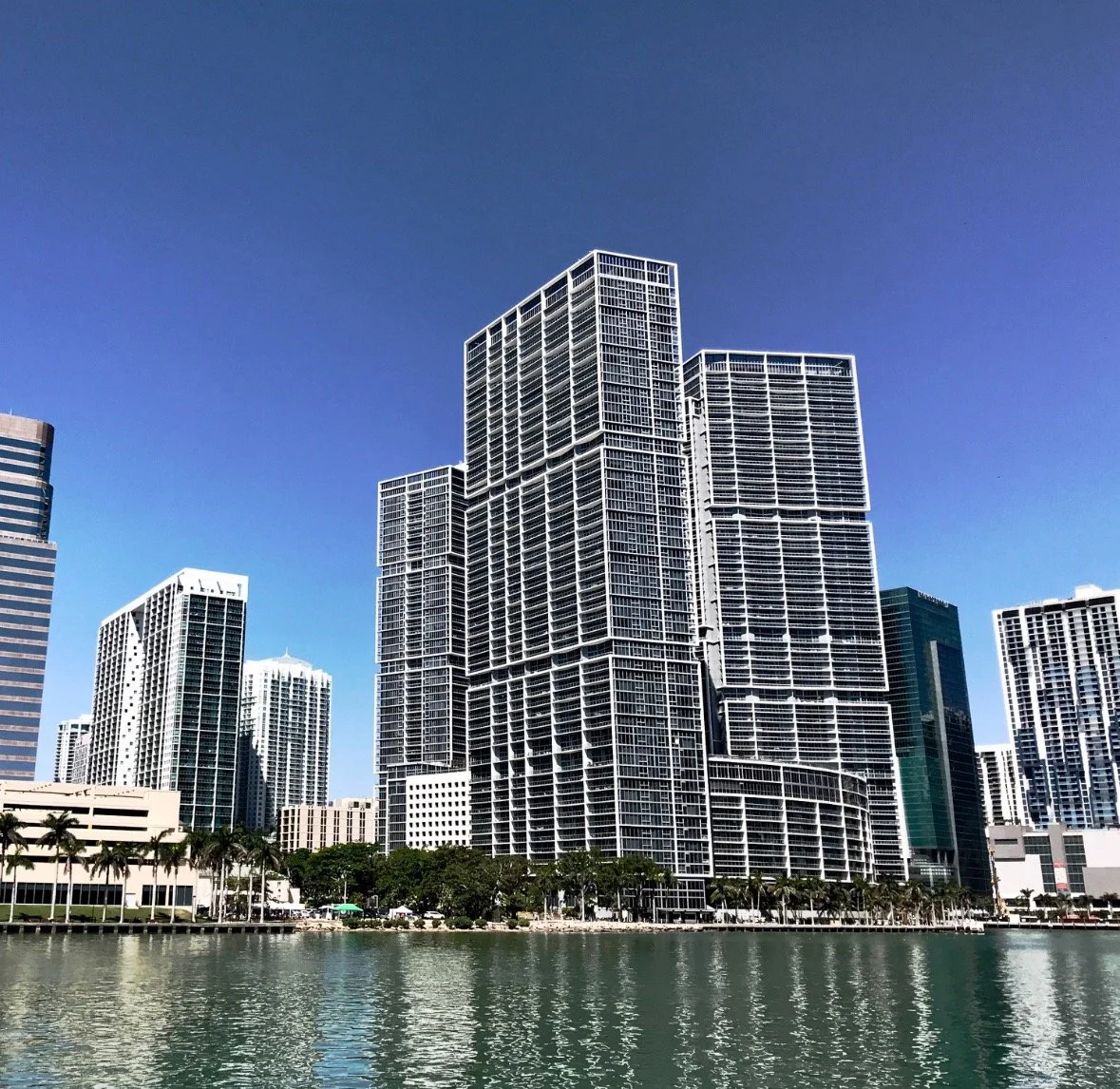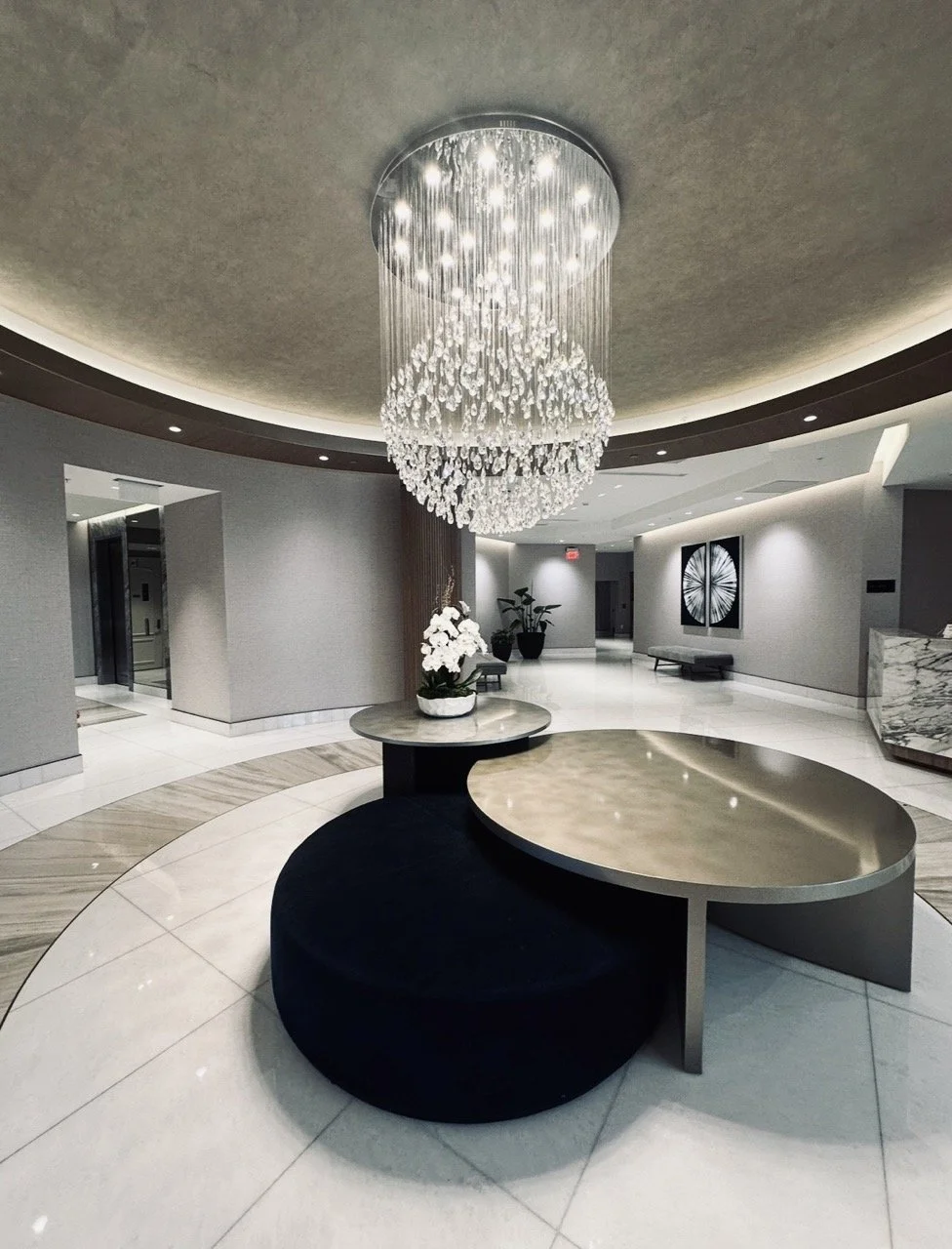What Buyers Need to Know About Condo Associations in Miami (2025 Update)
The rules beneath the surface, because you’re stepping into a living system
Brickell Condominiums | Photo by Nadia Bouzid
In Miami, a condo isn’t just a space. It’s a structure, legal, financial, and cultural. The finishes may catch your eye, but it’s the system behind the walls that decides how the building performs. What holds value. What breaks down. What gets quietly absorbed by the monthly fees, and what becomes your problem.
That system is the condo association. And if you’ve ever owned in a building with weak reserves, delayed maintenance, or constant board drama, you already know, this is where the real due diligence begins.
Monthly fees are not created equal. A low fee might mean efficient management, or it might mean underfunded reserves and deferred problems. A well-run association typically holds ten percent or more of its annual budget in reserves. Buildings over 20 years old should hold more. Especially now, when insurance costs are climbing, and every vendor has a waitlist.
Management matters. Some buildings work with companies like FirstService Residential or KW Property Management. Big names. Plenty of buildings. But structure doesn’t always mean transparency. In Miami, even the most established firms have their preferred vendors, their internal politics, their blind spots. Contracts are recycled. Bids aren’t always clean. Staff turnover can be constant. You might get a great property manager, or one who disappears after six months.
Just because it looks structured on paper doesn’t mean it runs that way. This is still Miami. It may wear a suit, but it’s a jungle under the collar.
The board is another layer entirely. Residents vote them in, but most buyers never ask who they are or how they make decisions. They approve the budget. Choose vendors. Enforce rules. Decide how the building prepares for storms, handles risk, or avoids it until it becomes too expensive to ignore. A reactive board creates delays. Delays create assessments. Quiet competence doesn’t show up in photos, but it makes itself known.
And in many buildings, especially higher-end ones, a good number of units are held in LLCs. Second homes. Investment vehicles. Mail gets forwarded. Emails get ignored. So when a vote is required, it stalls. No quorum. No response. Nothing moves. The building gets stuck, and no one’s even around to notice.
The rules matter. Some buildings limit rentals to once a year. Others don’t allow them in the first twelve months. Pet policies, renovation timelines, balcony restrictions — it’s all in the documents, whether anyone bothers to read them or not. These rules don’t just shape lifestyle. They shape liquidity.
Then there’s the state.
In June 2025, Florida passed legislation that changes how condo associations operate. The new law gives associations more flexibility and gives buyers more to review. It extends the reserve study deadline by a year. Allows associations to pause reserve contributions for two years to prioritize critical repairs. Raises the repair threshold from $10,000 to $25,000 before funds must be set aside. Which sounds helpful until you realize it gives weaker boards more room to delay what should already be underway.
The legislation also increases access and disclosure. Buyers now have seven days, not three, to review financial reports. Contracts must go through open bidding. Management conflicts must be disclosed. Associations are required to upload records and respond electronically. Meetings can be attended virtually. On paper, it’s progress. In practice, it depends on who’s running the show.
These reforms give you more data. They don’t guarantee discipline.
Before you commit, ask for the reserve study. Review the last three sets of board minutes. Check the building’s 40-year recertification status. Look into delinquencies, pending lawsuits, deferred maintenance. Walk the building midweek. Talk to the staff. Find out what’s being said, and what isn’t.
Because you are not just buying square footage. You are stepping into a living system. And that system doesn’t care what you paid. It remembers the decisions that came before you. It functions or fails accordingly.
In the end, the smartest buyers don’t ask how much the maintenance fee is. They ask where it’s going.
Looking at a building in Miami? I’ll help you read the fine print before the glossy brochure.
📱 Text me: 786.879.9502
📧 nadia@hlrealestategroup.com

